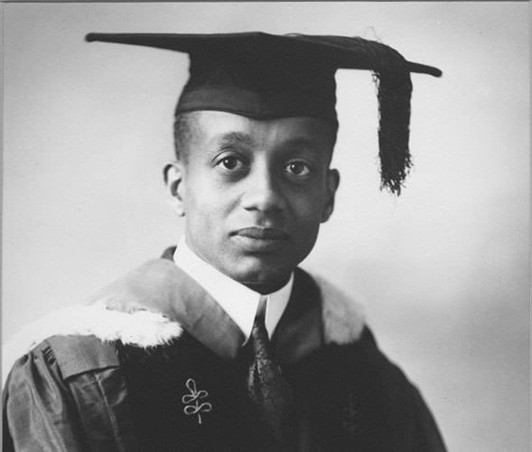
1885 - 1954
Dr. Alain Locke
Philosopher and Harlem Renaissance Leader
Alain LeRoy Locke (September 13, 1885 – June 9, 1954) was an American writer, philosopher, educator, and cultural critic, widely recognized as the 'Dean' of the Harlem Renaissance. Born in Philadelphia, Locke was a gifted student who graduated from Harvard University in 1907 with degrees in English and philosophy. That same year, he became the first African American to be awarded a Rhodes Scholarship, studying at Oxford University and later continuing his education in philosophy at the University of Berlin. He returned to Harvard to complete his Ph.D. in philosophy in 1918. Locke spent most of his academic career at Howard University, where he served as the chair of the philosophy department. He emphasized the importance of cultural pluralism, aesthetics, and race relations, often incorporating these ideas into his teaching and writings. His work was instrumental in shaping African American intellectual thought in the early 20th century. In 1925, Locke edited a special issue of Survey Graphic titled 'Harlem: Mecca of the New Negro,' which he later expanded into the influential anthology The New Negro: An Interpretation. This collection featured writings and artwork by leading Black creatives such as Langston Hughes, Zora Neale Hurston, and Countee Cullen, and it became a foundational text of the Harlem Renaissance. Locke encouraged Black artists and intellectuals to embrace African heritage and reject demeaning stereotypes. Locke also developed the Bronze Booklet series—educational pamphlets on African American history and culture designed for a general audience. Throughout his life, he promoted the idea that art and literature were powerful tools for racial uplift and self-definition. He retired from Howard in 1953 and passed away the following year in New York City. Locke's legacy endures in American philosophy, African American cultural history, and in institutions that bear his name.
Key Achievements
- Became the first African American to be awarded a Rhodes Scholarship
- Edited the influential anthology 'The New Negro: An Interpretation'
- Developed the Bronze Booklet series on African American history and culture
- Served as chair of the philosophy department at Howard University